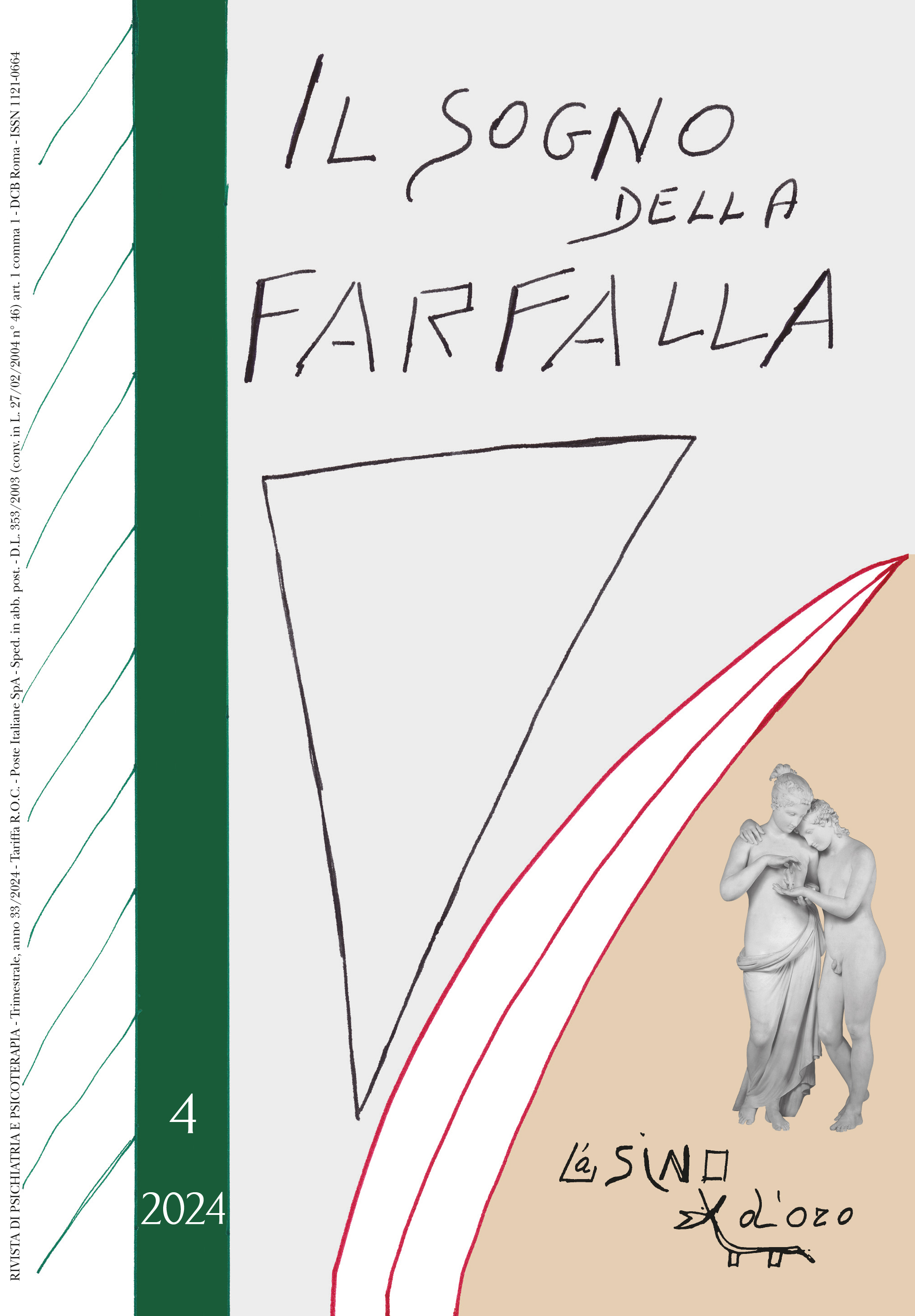«Una donna, il sottoscritto». Creatività e immagine femminile in Istinto di morte e conoscenza. Le ricadute nella storia del pensiero e dell’arte
DOI:
https://doi.org/10.14663/sdf.v33i4.925Parole chiave:
art, feminine, transformation, creativityAbstract
The aim of this article is to highlight the emergence and importance of the concept of “female image”’ theorized by Massimo Fagioli, in order to understand its revolutionary value. Specifically, this paper will focus on two crucial aspects: the clash of this concept, at the time of the appearance of Death instinct and knowledge, with most of cultural modernism’s instances, and more generally its importance for the reinterpretation of the history of creativity, from classical antiquity to the present day. The “female image” has been defined as the “ideal dynamic” of psychic evolution, which includes the disappearance of something and the appearance of something new; in Fagioli’s theory, the feminine is to be understood explicitly as creativity, which arises from the fertile, specifically sexual, relationship with the world. This creativity of the mind, which Fagioli identifies as “feminine” and which is valid as human identity and psychic reality, can also be configured as the activity of producing new things, the tangible manifestation of being and being present. The psychiatrist thus subtracts creativity from all cultural stereotypes and revolutionises the idea of it from the depths, understanding it as a continuous “transformation” in a process of alternating relationships and separations. Moreover, by adding a new sense of image to the reality of women, he allows for an unprecedented historical reconnaissance of the “feminine” in the history of Western
thought, uncovering the false exaltations that have been made of it and the partial oppositions to current thought that still strongly connote our culture.


